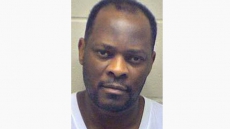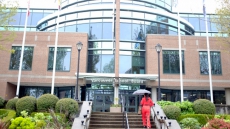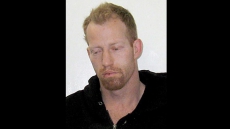OTTAWA — Justin Trudeau is promising to scrap Stephen Harper's brand of message discipline if he becomes prime minister, giving more freedom to bureaucrats, ditching the scripts for cabinet ministers and making them and himself more accessible to journalists.
The Liberal leader says Harper's penchant for strictly controlling the flow of information — and the select few who are allowed to sparingly dispense it — has led to an opaque, secretive government that is cut off from the citizens it's supposed to be serving.
A spokesman for Harper thoroughly rejected Trudeau’s assertions.
However Harper’s approach to communications makes for bad decisions and an unhealthy democracy, Trudeau said in a year-end interview that included his most thorough comments to date on what kind of standards he would set for communications.
"First of all, it breaks down the kind of trust that should exist between citizens and their government, whether it's through blocking access to information, an unwillingness to actually share data or evidence justifying various decisions, reliance on talking points," he told The Canadian Press.
"(It's) not really that citizens don't trust their government but that we have a government that doesn't trust its citizens, which is something that really makes it difficult to have a government that is truly serving the interests of its citizens."
Moreover, Trudeau said Harper's approach discourages strong ministers and "actually leads to poorer decision making and an inability to solve the very big challenges that we're facing."
Harper has had a rocky relationship with the parliamentary press corps. Conservatives routinely bash the "Ottawa media elite" whom they accuse of gushing "about their new hero, Justin Trudeau" — as the most recent party fundraising missive put it.
The prime minister rarely holds news conferences and his aides are known for trying to control which reporters are allowed to ask questions.
Only a handful of Harper's ministers speak freely to reporters while others generally avoid the media and rely on scripted texts to answer questions. Journalists' questions to departments or ministerial offices are generally required to be in writing and the answers often do not respond directly to the questions posed.
And the Harper government has taken message control a step further by bringing in the "Message Event Proposal" — a document departments must fill out describing in minute detail plans for even the most routine announcements or responses to journalists, which must be approved by the Prime Minister's Office and its bureaucratic arm, the Privy Council Office.
As he's gone around the country attempting to recruit people to run for the Liberal party, Trudeau said would-be candidates have repeatedly sought assurances that he would not emulate Harper and keep muzzled ministers on a short leash.
"You can't run a government from one single person," Trudeau said. "What instead matters is that leadership be about gathering around extraordinary individuals and getting the best out of them."
Trudeau added that "a free and informed press is an essential part of any informed democracy, making sure citizens know (what's going on) and are able to hold their leaders to account." Freezing out the media is "not just weakening the functioning of our democracy but weakening the outcomes of our governance."
Trudeau has had his own issues with some media. He briefly refused to take questions from Sun News Network reporters after one of the network's on-air personalities, Ezra Levant, used a photo of Trudeau kissing a bride's cheek to go on a rant about the allegedly loose morals of the Liberal leader. Trudeau resumed taking questions after the network apologized.
Trudeau said taking tough questions from reporters "is something I've demonstrated, sometimes to my detriment, that I'm always willing to do."
He acknowledged that people might think opposition leaders have little choice but to be accessible because they need exposure. But he noted: "I do a fairly good job of drawing attention but I'm still doing as many scrums as I possibly can because I think it's really important to establish a connection and a trust, not with journalists but with ... Canadians who are wishing to be informed."
In addition to freezing out journalists, Harper's government has also been accused of tightening access to information, prohibiting bureaucrats, particularly scientists, from speaking publicly and otherwise clamping down on the flow of information.
Trudeau said he believes the government doesn't trust professional civil servants to speak publicly, fearing they won't defend government policies because they've had little input into them.
"That using of professional bureaucrats and civil servants to generate suggestions based on sound public policy principles is something this government simply isn't doing. We have the political wing deciding what the policy is going to be and then enacting it."
A Harper spokesman took issue with suggestions that Harper avoids the media and doesn't let his cabinet ministers and public servants speak freely.
Jason MacDonald said most cabinet ministers regularly talk to reporters and officials have given technical briefings on a range of subjects. He also said Harper gave a number of year-end interviews to media outlets.
"I would challenge his (Trudeau's) assertions," MacDonald said in an emailed response.






